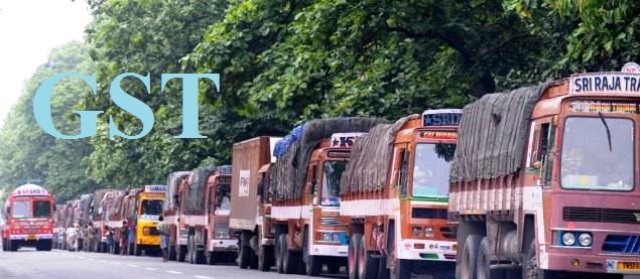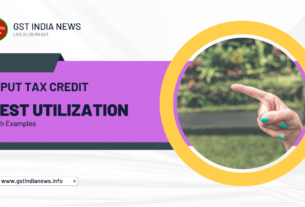
It should be noted that prior to service tax implementation these agencies were not paying any sort of tax to the government for moving the goods from one place to another or one state to another state on behalf of their customers.
After service tax implementation initially government asked to pay 10% service tax on the 75% of the billing done to the customer. But they were not ready to pay even at that time so thereafter government passed a bill called “Reverse Charge Mechanism(RCM)” that means whatever the invoice raised by the transporter for moving the goods, the receiver of the service(customer) has to pay the service tax to the government.
Current Scenario
Now Under the GST regime supply chain agencies have to undertake more tasks to get into the GST system, because the government has implemented e-way bill system, under which movement of goods worth more than Rs 50,000 by a registered entity will require prior online registration of the consignment on the GST portal and securing an “e-way” bill.
In case the e-way bill is not generated by the registered entity, and the goods are handed over to a transporter, the registered entity is required to furnish the information relating to the transporter on the common portal and the e-way bill shall be generated by the transporter.
The transporter carrying the goods will be required to carry the e-way bill along with the invoice/bill of supply/delivery challan. Since the transaction will eventually be recorded under the GST system, a lack of registration under the Act by transport intermediaries could create problems.
Registration for Supply chain
Registration is mandatory for all intermediaries of the supply chain, who are also required to reveal their transactions to bring transparency to the system. Supply chain intermediaries typically include goods transport agents (GTAs), freight aggregators, logistics firms, including e- truck entities linking suppliers with the consignment receiver.
“Supply chain intermediaries were asked to register under this Act in 2011, within a period of 180 days. It takes three days for this registration.
Why have most remained unregistered to date? There is nothing to be confused about and even if they were, intermediaries could have approached relevant authorities then,” said S P Singh, senior fellow, and coordinator at the Indian Foundation of Transport Research and Training (IFTRT).
The independent research body claims that over 90 percent of key supply chain service providers remain unregistered under the Carriage Act leading to transactions going unrecognized.
Meanwhile, the Bombay Goods Transport Association said nearly 90 percent of its members have already registered and are complying with the regulations.
“Members are aware that the registration under this Act is mandatory and seminars are being held to spread awareness. There are about 300 members and the registration process is going smooth,” said Anil Mittal, member of the managing committee at Bombay Goods Transport Association.
While Calcutta Goods Transport Association has more than 200 members, officials at the association were unable to reveal the registration status. Registration under this Act involves a total charge of Rs 6,250 for a period of 10 years and is to be carried out by the intermediary in the city where they reside.
What are Intermediary Services in GST?
The intermediary means a broker, an agent or any other person, by whatever name called, who
arranges or facilitates the supply of goods or services or both, or securities, between two or
more persons, but does not include a person who supplies such goods or services or both or
securities on his own account.
The above definition is produced as per sub-section (13) of section 2 of the Integrated
Goods and Services Tax Act, 2017.
Latest update on Intermediary services
20.09.2021: The CBIC has issued a circular clarifying the scope of intermediary services under GST. This has reference to circular no. 159/15/2021-GST dt. 20.09.2021. The said circular clarifies the Primary Requirements for carrying out intermediary services. Here is the list of these requirements. you may read the circular for more details.
- Minimum of Three Parties
- Two distinct supplies
- Intermediary service provider to have the character of an agent, broker or any other similar person
- Does not include a person who supplies such goods or services or both or securities on his own account
- Sub-contracting for a service is not an intermediary service
Related Articles
How GST impacts Indian Economy?
Since the GST is the biggest tax reform in India since its Independence, a great change of the indirect tax landscape took place in the country. The GST tax clubbed over a dozen central and state taxes at a single tax system. more
How GST impacted Construction Industry?
The construction industry has been raising concerns about how the GST will be an unmanageable burden as the land may be doubly taxed. more
About impact of GST on Service Sector
The Goods and Service Tax impact on the service sector of India could be inflationary for the short term. more
Lastest News on GST Impact
The impact of GST in India can be seen as positive in many sectors. However, its negative impact is also seen in few sectors. check out the latest impacts of GST. more



